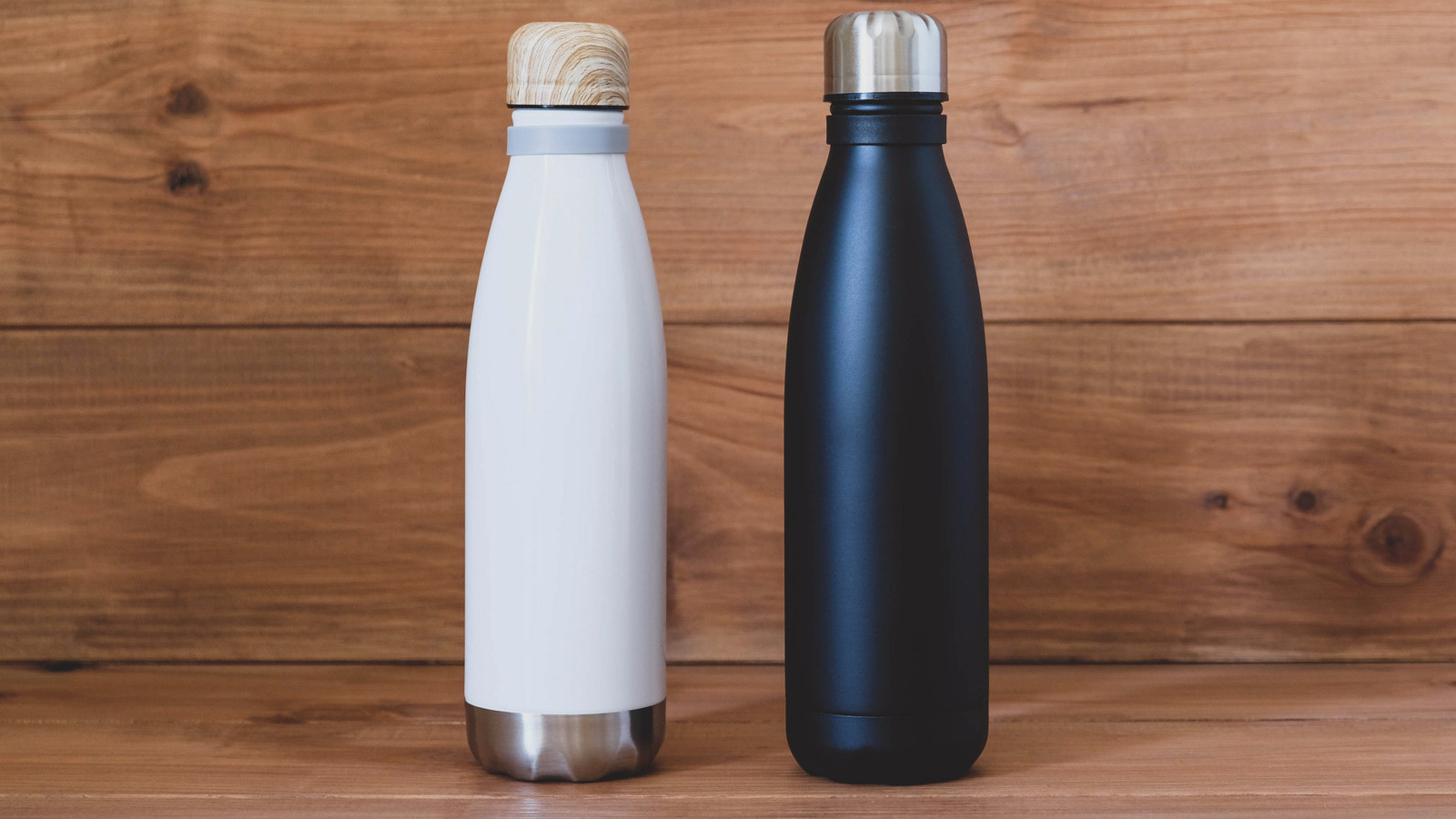Is it safe to drink from stainless steel everyday?

Is it safe to drink out of stainless steel all the time
There are no known safety concerns associated with using stainless steel, assuming it is indeed stainless and lead-free.. Compared to water in glass bottles, some people think stainless steel bottles make your water have a metallic taste and some can heat up in summer temperatures.
Is it better to drink out of stainless steel
Stainless Steel Water Bottles are Safe
The plastics in recyclable plastic water bottles are thought to be a health risk. Harmful chemicals are emitted from these bottles, and these chemicals might cause cancer. By switching to stainless steel, you can prevent harmful carcinogens from leaching into your drinking water.
Is drinking out of stainless steel better than plastic
However, research shows that other chemicals found in plastic may be just as harmful as BPA. The best alternative to plastic bottles is a food-grade stainless steel water bottle because it doesn't contain the harmful chemicals that plastic does and it won't leach chemicals, even if you fill it with hot beverages.
What should you not drink with stainless steel
One study on stainless steel water bottles found that:
Leaching of nickel occurred in curd, fruit juice andpickle (more acid) Leaching of chromium occurred in milk, coffee, and tea (only slightly acid)
What are the side effects of stainless steel
Disadvantages of stainless steel cookware
Stainless steel can contain iron, chromium, and nickel, the latter having no nutritional benefit in the body. Nickel has also been linked to adverse health effects, including sensitization to allergic (contact) dermatitis in some people (R).
What are the side effects of stainless steel in the body
As a material, however, stainless steel isn't without its flaws. Over time, steel implants can cause allergic and toxic reactions and be rejected by the body, and in less hygienic surgical environments steel may not adequately resist the buildup of harmful bacteria.
Are there any side effects of wearing stainless steel
Stainless Steel Is Completely Safe
Stainless steel is also biocompatible, so stainless steel has no biological or chemical effects on the body. It doesn't leach into your blood, cause any adverse effects, and won't interfere with any medications or medical procedures.
Which is healthier stainless steel or glass
Glass Doesn't Leach Chemicals
We tend to assume that metal bottles on the market are stainless steel, but this isn't always the case. Many of them are made from aluminum, a neurotoxin that will never leave your body (like Mercury or lead) and is known to lead to Alzheimer's Disease.
Is stainless steel BPA free
Because food-grade stainless steel is non-toxic, rust resistant and corrosion resistant, it doesn't need a liner. That means our reusable water bottles, travel coffee cups, and insulated food pots are 100% BPA free.
What are the benefits of eating on stainless steel
Stainless steel is non leachable which makes it safe for cooking, without compromising flavour and taste of dishes. Unlike other metals, stainless steel does not easily corrode when exposed to certain acidic foods.
What are the benefits of stainless steel
7 Benefits of Stainless SteelCorrosion Resistance. One of the best and most well-known characteristics of stainless steel is that it is extremely corrosion resistant.Fire and heat resistance.Hygiene.Impact resistance and strength.Aesthetic appearance.Sustainability.Long term value.
Does stainless steel release toxins when heated
As a general rule, stainless steel cookware doesn't release toxic fumes when heated. When stainless steel cookware is exposed to high heat it forms an oxidized protective layer which contributes to even greater inertness and stability of the cookware surface.
How does stainless steel benefit health
Stainless steel cookware is easy to clean and disinfect. It's non-porous with a smooth and sealed surface that air and liquid cannot move through. Since food can't penetrate the surface, it's easy to prevent buildup that would lead to the growth of germs and bacteria.
Does wearing stainless steel have any health benefits
Hypoallergenic
Well, one of the major benefits of stainless steel jewelry is that it doesn't trigger flare-ups as silver or gold can. As there are no impurities, you can wear it in good health, so you won't end up with that dreaded green mark left once you take the ring off.
Which stainless steel is healthiest
18/0 is the safest stainless steel in regards to nickel exposure. However, it is more likely to corrode and is more expensive. 200 series stainless steel is commonly used in food containers. While this is not as high quality as the 300 series or 400 series, it is considered food grade.
Is it healthier to boil water in glass or stainless steel
Glass vs stainless steel kettle: Which is safest Glass kettles can't rust and are free from metal residue. This means they don't have the associated problems of metallic taste, rusting, and releasing heavy metals into boiling water − many people consider them better for your health and the environment.
Is stainless steel always lead free
Stainless steel does contain other toxic metals (see Is Stainless Steel Safe) but it does not contain lead.
Is stainless steel less toxic than plastic
Stainless steel is generally considered to be a safe and non-toxic material, with no known health risks associated with its use. Plastic, on the other hand, can contain harmful chemicals like BPA and phthalates, which can leach into food and beverages and pose health risks to humans and wildlife.
Is it healthy to eat from stainless steel
Completely and infinitely recyclable, stainless steel is the “green material” par excellence. An alloy with more than 10.5% chromium qualifies for it to be stainless steel, but generally an alloy with more than 14-18% chromium makes it food safe or food grade.
Why is stainless steel better for food
Its robust corrosion resistance and ease of cleaning make stainless steel both durable and hygienic, two very valuable properties in food service preparation. Food safety starts with rigorous hygiene, and nickel-containing stainless steels are the superior, reliable standard at every link of the food chain.



0 Comments